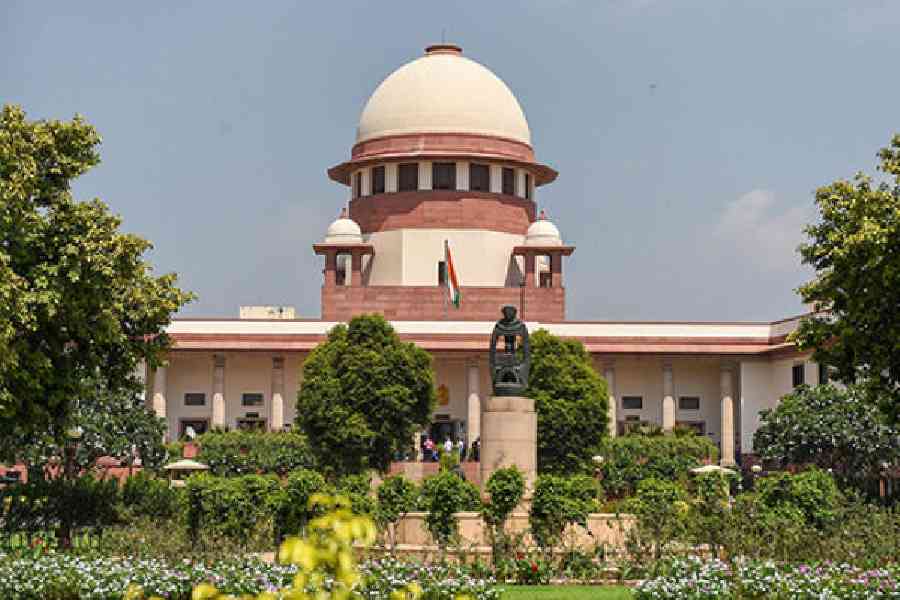The Supreme Court on Monday passed an “unusual order” barring courts from granting bail, till the conclusion of investigations, to three “digital arrest” accused charged with swindling a 72-year-old woman advocate out of ₹3.29 crore.
The suspects “shall not be released by any court of the country till the investigation comes to a conclusion”, the apex court ordered.
The directive is unusual because the apex court has down the years passed multiple orders telling lower courts that “bail is the rule and jail the exception”.
Justice Surya Kant, scheduled to take over as Chief Justice of India on November 24, issued the directive on an intervention application from the Supreme Court Advocate On Record Association (Scora), of which the victim, Hematika Wahi, is
a member.
Solicitor-general Tushar Mehta supported the petitioner’s plea against the release of the accused, arrested by the Gautam Buddha Nagar cyber police, Uttar Pradesh. He said “unusual interventions are required” to tackle “unusual phenomena”.
The present matter “requires unusual order”, the bench, which included Justice Joymalya Bagchi, agreed.
In a “digital arrest”, cyber frauds pose as police or government officials to intimidate victims — often with the threat of arrest — into sending them money.
The apex court had got a “digital arrest” case registered suo motu on October 17 after an elderly couple wrote to outgoing Chief Justice B.R. Gavai describing how they had been swindled out of their life’s savings of ₹1.05 crore in September.
What had shaken the court was the scamsters’ alleged “fabrication of judicial orders bearing forged signatures of judges”.
It’s in this case that Scora filed its interventionapplication.
The apex court had on October 17 issued notices to the Centre and the CBI, and sought the attorney-general’s assistance to evolve a strategy against the increasing threat of “digital arrests”.
The next hearing is onNovember 24.










